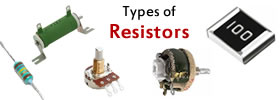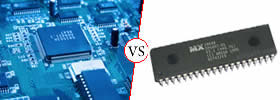Difference between Asus PadFone Infinity and Galaxy Note 10.1
Key Difference: The Asus Padfone Infinity smartphone is a slick 5-inch full HD 1920x1080, Super IPS+ with Capacitive Multi touch panel and provides approximately 441 ppi density. The device is a bar phone, with curved corners giving it a similar look to the ‘iPhone’ and ‘HTC One’. The Asus Padfone Infinity Dock is basically the 10-inch tablet shell that allows users to dock their phone into the tablet by sliding it into a slick slot on the back. The Galaxy Note 10.1 is a tablet computer designed and manufactured by Samsung. It features a 10.1-inch screen and is marketed as a platform for multimedia consumption including movies, music, and web browsing. The Note 10.1 also features the use of a stylus named the S-Pen. The Note 10.1 runs on Android 4.0.
 Asus has announced its latest phone and tablet in the Padfone series, knighted the Asus Padfone Infinity. The original Asus Padfone did not reach the Western Shores but the company states that the Padfone Infinity is set for world-wide launch in the second quarter of 2013. Similar to the original Padfone, the Padfone Infinity is available just as smartphone or along with a tablet dock that allows seamless transition between phone and tablet needs. The Padfone Infinity is a pretty intriguing concept that allows the phone to dock on the tablet, which powers the tablet and transfers all the data on the tablet for use. However, without the phone the tablet is just a shell without any ‘brain’ of its own. The phone/tablet is set to provide serious competition to rivals Sony Xperia Z Tab, iPad 4 and Samsung Galaxy Tab. Let’s cover its features separately.
Asus has announced its latest phone and tablet in the Padfone series, knighted the Asus Padfone Infinity. The original Asus Padfone did not reach the Western Shores but the company states that the Padfone Infinity is set for world-wide launch in the second quarter of 2013. Similar to the original Padfone, the Padfone Infinity is available just as smartphone or along with a tablet dock that allows seamless transition between phone and tablet needs. The Padfone Infinity is a pretty intriguing concept that allows the phone to dock on the tablet, which powers the tablet and transfers all the data on the tablet for use. However, without the phone the tablet is just a shell without any ‘brain’ of its own. The phone/tablet is set to provide serious competition to rivals Sony Xperia Z Tab, iPad 4 and Samsung Galaxy Tab. Let’s cover its features separately.
The Asus Padfone Infinity smartphone is a slick 5-inch full HD 1920x1080, Super IPS+ with Capacitive Multi touch panel and provides approximately 441 ppi density, making the screen visibly sharp, crisp and clear. The device is a bar phone, with curved corners giving it a similar look to the ‘iPhone’ and ‘HTC One’. The phone has a sleek metallic chassis, with a silver brushed look on the back. The phone is powered by the latest 1.7GHz quad-core Krait Qualcomm Snapdragon 600, providing fast responsiveness from the device. It offers the latest Android v4.2 Jelly Bean. The phone has a 2GB RAM and is available with 32/64 GB of internal storage capacity. The phone houses a 13MP primary camera and a 2MP secondary camera, with HD recording capability. The massive battery power allows the phone to provide up to 19 hours of 3G talk time. The company also introduced a bunch of new features such as Asus Echo, SuperNote, ASUS Story, Instant Dictionary and two years’ free Cloud Storage with 50GB ASUS WebStorage. The Asus Echo is the newest personal assistant, similar to Siri that allows the user to activate a number of features (search contacts, make calls, pick up incoming calls, activate the camera shutter for self-portraits, set alarms, change settings, etc) on the phone using voice commands. The new SuperNote supports real-time handwriting to text conversion and is sensitive enough to accurately translate from handwriting to text. Asus Story allows users to create albums and story lines, while Instant Dictionary allows users to translate words, phrases and sentences in emails, web pages or apps.
The Asus Padfone Infinity Dock is basically the tablet shell that allows users to dock their phone into the tablet by sliding it into a slick slot on the back. The slot comes with rubber gromits that ensures that the phone locks into place and does not slide out and fall. When the phone is docked on the tablet, the tablet and the phone synchronize automatically and the apps that were on the screen of the phone automatically re-sizes itself and pops up on the tablet screen. The tablet sports a 10.1 Full HD 1920x1080, Super IPS+ with Capacitive Multi touch panel, similar to the phone, providing a clear and detailed picture on the tablet. The screen on both, the phone and the tablet, have a Corning Gorilla Glass covering. The tablet does not have a processor or anything such hardware on it. It does offer a few advantages to the phone. The tablet houses a 1MP front camera for video calls. The tablet is also capable to output 1080 Full HD video via Micro-USB compatible MyDP interface. The device also has a dialer and is able to accept and make phone calls and send text messages. The phone and the tablet have speakers have the ASUS Audio Wizard audio enhancement providing rich audio experience. The battery as a massive 5000 mAh Li-Polymer, that enhances the battery power of the phone allowing up to 40 hours of 3G talk time. The tablet also has the power to charge the phone three times with a full battery. The tablet starts charging the battery of the phone, when the phone is docked into the tablet.
The high-end phone/tablet hybrid comes with a high-end price of EUR 999 and should be around US$ 1300 when it finally reaches the States. The main purpose of such a hybrid is so that people can use one data plan and it eliminates the need for manually synchronizing the tablet to phone and vice-versa. The phone has also been criticized for the lack of the keyboard, which was one of the features available in the original Padfone. Will the phone be a massive success or failure will be seen when the phone finally becomes available world-wide.

An OEM which also had Android based devices in the market is Samsung. Samsung Group is a South Korean chaebol, the largest in South Korea. A chaebol is basically a conglomerate. Samsung has been launching popular phones and tablets, which have taken the market by a storm. Samsung Galaxy series has been one of the most popular series on the market and has been going head to head with the trend-setting Apple phones. One of the popular tablets launched by the company is the Samsung’s Galaxy Note 10.1.
The Galaxy Note 10.1 is a tablet computer designed and manufactured by Samsung. It features a 10.1-inch screen and is marketed as a platform for multimedia consumption including movies, music, and web browsing. The Note 10.1 also features the use of a stylus named the S-Pen. The stylus is meant to be used as an input device for sketching and note-taking. The Note 10.1 runs on Android 4.0. The stylus and the tablet work seamlessly together and also have a palm rejection software. The palm rejection software makes sure to reject any other body parts when the stylus is connected to the screen, enabling people to place their hand on the tablet as they write. Another new feature that was launched with the tablet was the Multiscreen option. The multiscreen feature allows the user to open and work on two apps simultaneously. However, it is currently limited to only six apps (S Note, Polaris Office, Video Player, gallery, Email, and the Android 4.0 browser) that can be opened side-by-side.
The Note 10.1 is available with 16 GB, 32 GB and 64 GB storage capacity. The models are further bifurcated under Wi-Fi only, Wi-Fi and 3G, as well as Wi-Fi, 3G and LTE. The tablet houses1.4 GHz Quad-core Cortex-A9 processor with 2 GB RAM, working seamlessly without any lag. The Note 10.1 offers 5 MP autofocus rear camera and a 1.9 MP front camera for video calling. The tablet also houses a powerful 7000 mAh battery that can provide a talk time of approximately 33 hours. It also offers a variety of features including IR Blaster, which allows the tablet to become into a fully-functional remote control. It works with Peel’s Smart Remote app that also displays a list of shows or movies that are currently playing on the local provider’s channels.
The information for the detailed table about the two phones has been taken from the Asus website, Samsung website and GSMArena.com.
|
|
Asus Padfone Infinity |
Galaxy Note 10.1 |
|
Launch Date |
Expected Release Q2/2013 |
August 2012 |
|
Company |
Asus |
Samsung Corporation |
|
Size |
Phone:143.5 x 72.8 x 8.9 mm Pad: 264.6 x 181.6 x 10.6 mm |
262 x 180 x 8.9 mm (10.31 x 7.09 x 0.35 in) |
|
Display |
Phone: 5-inches, Full HD 1920x1080, Super IPS+ with Capacitive Multi touch panel Pad: 10.1-inches, Full HD 1920x1080, Super IPS+ with Capacitive Multi touch panel |
PLS TFT capacitive touchscreen, 16M colors |
|
Screen |
Phone: 1080 x 1920 pixels (~441 ppi pixel density) Pad: 1920x1080 pixels (~441 ppi pixel density) |
800 x 1280 pixels, 10.1 inches (~149 ppi pixel density) |
|
Protection |
Corning Gorilla Glass on both the phone and the pad. |
- |
|
Weight |
Phone: 141 grams Pad: 530 grams |
3G model: 600g Wi-Fi: 597g |
|
2G Network |
GSM 850 / 900 / 1800 / 1900 |
GSM 850 / 900 / 1800 / 1900 |
|
3G Network |
HSDPA 900 / 2100 |
HSDPA 850 / 900 / 1900 / 2100 |
|
4G Network |
LTE 800 / 1800 / 2600 / 2100 |
LTE 1800/ 2600MHz) and 3.5G (HSPA+ 42.2Mbps) |
|
GUI |
Asus' UI |
Samsung TouchWiz UI |
|
CPU speed |
1.7GHz quad-core Krait Qualcomm Snapdragon 600 |
Quad-core 1.4 GHz Cortex-A9 |
|
GPU |
Adreno 320 |
Mali-400MP |
|
OS |
Android v4.2 (Jelly Bean) |
Android OS, v4.0.3 (Ice Cream Sandwich), upgradable to v4.1 (Jelly Bean) |
|
Chipset |
Qualcomm APQ8064T Snapdragon 600 |
Exynos 4412 |
|
RAM |
2 GB |
2 GB RAM |
|
SIM Size |
nanoSIM |
miniSIM |
|
Internal Memory |
32/64 GB |
16/32/64 GB |
|
Expandable Memory |
N/A |
Up to 64 GB |
|
Sensors |
G-Sensor, E-compass, Gyroscope, Proximity, Light Sensor |
Accelerometer, gyro, compass |
|
Connectivity |
GPRS Class 10, EDGE Class 10, LTE, Bluetooth, Wi-Fi, USB, Wi-Fi hotspot. |
Bluetooth technology v 4.0 (Apt-X Codec support) AllShare Play / AllShare Cast Kies / Samsung Kies air USB 2.0 Host, Samsung Wi-Fi 802.11 a/b/g/n (2.4 & 5 GHz), Wi-Fi Direct Wi-Fi Channel Bonding |
|
Data |
GPRS, EDGE, WLAN, Bluetooth, NFC, USB, USB Host. |
WiFi, GPRS, EDGE, USB, LTE |
|
Speed |
DC-HSPA+, 42 Mbps; HSDPA, 21 Mbps; HSUPA, 5.76 Mbps; LTE, Cat3, 50 Mbps UL, 100 Mbps DL |
HSDPA, 21 Mbps; HSUPA, 5.76 Mbps |
|
WLAN |
Wi-Fi 802.11 a/ac/b/g/n, Wi-Fi Direct, dual-band, Wi-Fi hotspot |
Wi-Fi 802.11 a/b/g/n, Wi-Fi Direct, dual-band, Wi-Fi hotspot |
|
Bluetooth |
Bluetooth v4.0 with A2DP |
Bluetooth v4.0 with A2DP |
|
USB |
microUSB v2.0 (MHL), USB Host |
USB v2.0 (MHL), USB Host |
|
Primary Camera |
13 MP, 4128 x 3096 pixels, autofocus camera |
5 MP, 2592х1944 pixels, autofocus, LED flash |
|
Secondary Camera |
Phone: 2 MP 1080p@30fps camera Pad: 1MP front camera |
1.9 MP |
|
Video |
1080p@30fps |
720p@30fps |
|
Camera Features |
|
|
|
Sound Enhancement |
ASUS Audio Wizard ASUS Sonicmaster |
No |
|
Audio supported formats |
MP3/3GP/AAC/AAC+ |
MP3/WAV/eAAC+/Flac player |
|
Video supported formats |
MP4/H.264/H.263 player |
MP4/DivX/Xvid/FLV/MKV/H.264/H.263 player |
|
Battery Capacity |
Phone: 2400 mAh Li-Polymer Pad: 5000 mAh Li-Polymer |
Non-removable Li-Ion 7000 mAh battery |
|
Talktime |
Phone: 3G: 19 hours Pad: 3G: 40 hours |
2G: 33 hours |
|
Standby Time |
Phone: 3G: 410 hours Pad: 3G: 920 hours |
2G: 1500 hours |
|
Available Colors |
Titanium Gray, Champagne Gold, Hot Pink |
Black, White/Silver |
|
Messaging |
SMS(threaded view), MMS, Email, Push Email, IM |
SMS(threaded view), MMS, Email, Push Email, IM |
|
Browser |
HTML5 |
HTML, Adobe Flash |
|
Radio |
FM radio |
No |
|
GPS |
A-GPS & GLONASS |
Yes, with A-GPS support; GLONASS |
|
Java |
Yes, via Java MIDP emulator |
Java MIDP emulator |
|
Additional Features |
|
|
Image Courtesy: asus.com, samsung.com









Add new comment